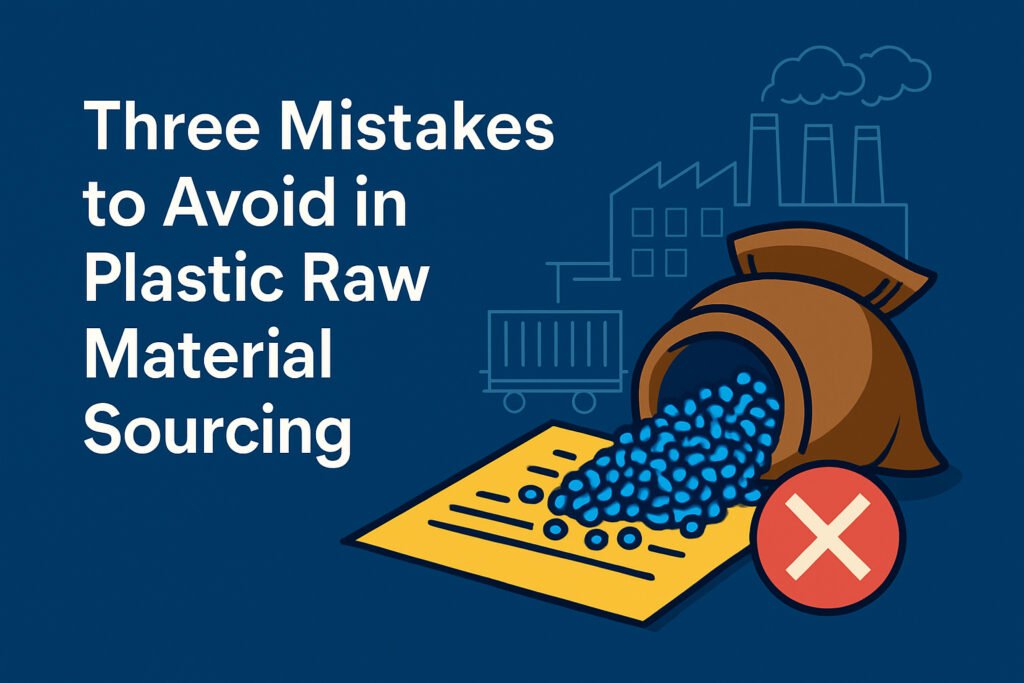I. Real Case Study: The Chain Reaction from Returns to Production Suspension
Not long ago, a case circulated within the industry: an automotive parts manufacturer, while mass-producing a high-temperature connector, purchased dozens of tons of engineering plastic raw materials from overseas for a batch of export orders.
However, during the production and assembly phase, some products deformed during prolonged high-temperature testing and failed to pass the end-customer's automotive-grade certification. Tracing the cause revealed a discrepancy between the material's actual heat deformation temperature and the data provided by the supplier, and that the company had skipped sample verification and mold trial testing before placing the order.
As a result, the company was forced to halt large-scale production, urgently source replacement material, and negotiate with the supplier to process returns for unused parts and claims for discounts on processed parts. Although some raw materials remained in their original packaging and could be returned for export, the company suffered significant financial andreputational damage due to additional shipping costs, delivery delays, customer fines, and production suspension.

II. Three Common Pitfalls in Raw Material Procurement
1. Focusing solely on price, ignoring the full compatibility of materials with operating conditions.
Many companies prioritize "low price" in purchasing decisions, overlooking the compatibility of materials with actual application scenarios.
Take TPEE, for example. Although they are the same polyester elastomer, different grades have significant differences in heat resistance, fatigue resistance, and adhesion. Ordering based solely on a single-page data sheet or price comparisons can lead to incompatible materials, resulting in deformation, surface defects, or premature aging in the final product.
Pro Tip:
Before placing an order, obtain complete physical property sheets and third-party test reports, and have technical support analyze compatibility with specific operating conditions (such as temperature, load, and media resistance).
Juyuan offers comparative analysis across multiple brands and grades, along with modification advice tailored to your specific product and performance requirements.
2. Ignoring supply chain stability and delivery assurance.
Amid increasing fluctuations in global raw material supply, focusing solely on price while ignoring delivery schedules and availability often leads to greater uncertainty. For example, if a production line is shut down or a port is delayed for certain grades, material delivery, typically scheduled for two weeks, could be delayed for over two months, directly impacting production schedules.
Pro Tip:
・Work with suppliers with multi-channel supply capabilities and ample inventory reserves.
・Sign procurement contracts with delivery guarantees.
・Establish a dual-supplier structure for key raw materials.
・For large orders, prioritize the "small-scale trial mold + batch delivery" model.
Juyuan, with its global inventory network and long-term logistics partnerships, can provide inter-regional inventory transfers, urgent resupply, and early risk alerts to help clients avoid stockouts—particularly valuable for time-sensitive, export-driven production.
3. Skipping Sample Verification and Process Compatibility Testing
Some companies skip sample testing, process verification, and trial molds to meet deadlines. However, even if material data is "compliant," warping, cracking, and surface defects may still occur under specific processing equipment, molds, or process parameters.
Pro Tip:
Incorporate "sample verification + small-batch trial production" into your regular procurement process. Through trial molds, we observe actual performance, such as flowability, release properties, and shrinkage, and then determine whether further formulation adjustments or functional modifications are necessary.
Juyuan can provide:
・Free initial samples
・Professional process advice + material modification services
・Recommend the most suitable material formula for melt index and filling system based on equipment characteristics.
Our partner modification factories can optimize material properties based on the customer's molds and molding conditions, minimizing the risk of processing failure.
III. How to Establish a Robust Raw Material Procurement System?
To avoid the risk of large-scale returns and production line interruptions, we recommend the following procurement strategies:
| Key Area | Recommended Action |
| Data-Driven Selection | Use both datasheets and third-party testing data; evaluate based on real-world application scenarios |
| Diversified Supply Base | Secure at least two qualified suppliers for each critical material |
| Preemptive Risk Control | Combine sample validation, pilot production, and phased delivery |
| Long-Term Partnerships | Work with suppliers that offer tech support, free samples, modification services, and global logistics coordination |
IV. Conclusion: Price is just a facade; robust sourcing is key.
When sourcing plastic raw materials, the true impact on product quality and corporate reputation lies not simply in the price itself, but rather in:
・Whether the material properties precisely match the operating conditions
・Whether sufficient sample verification and technical evaluation are available
・Whether continuous delivery and rapid response to unexpected risks can be guaranteed
As a professional partner specializing in the international trade of plastic raw materials, Juyuan is committed to providing clients with:
・Multi-brand and multi-model selection advice
・Sample verification and custom modification services
・Global collaborative supply and emergency stocking capabilities
We believe that proactively avoiding risks, rather than remediating them afterward, is the long-term path to reducing costs and earning customer trust.

